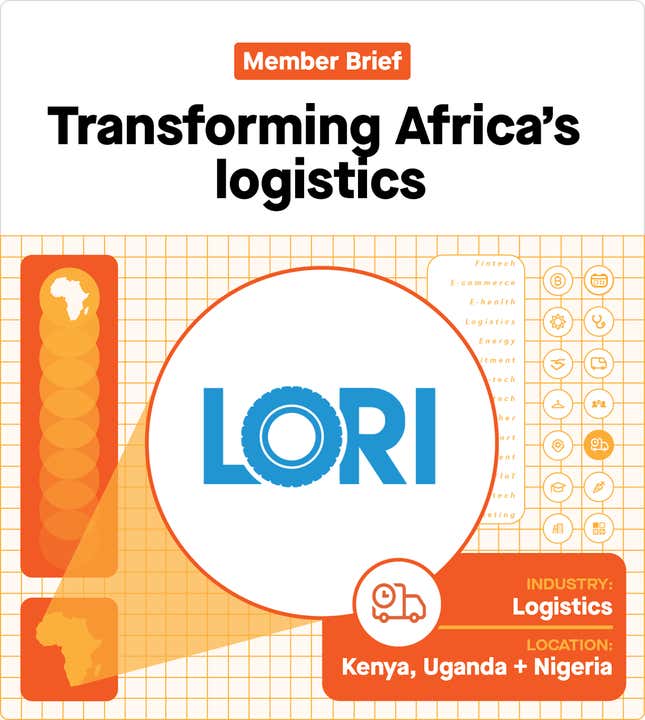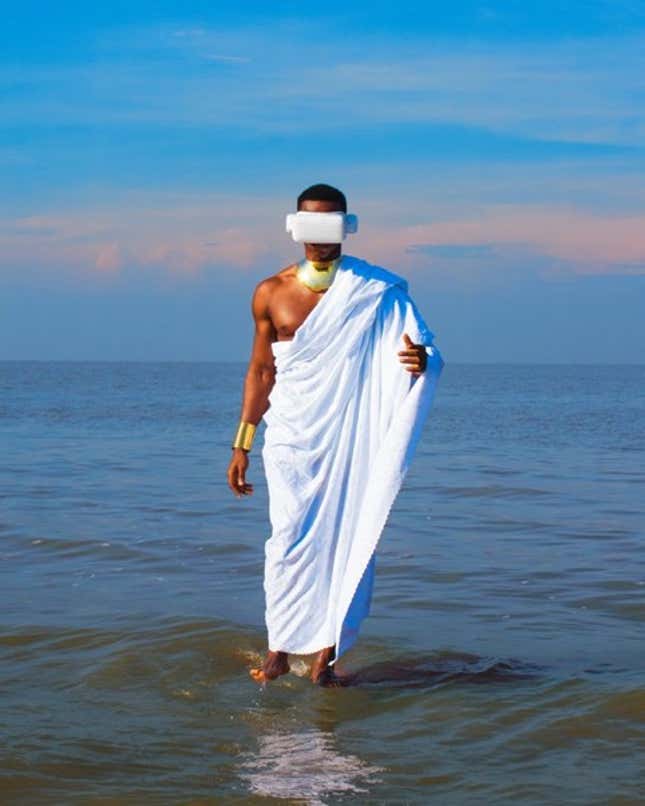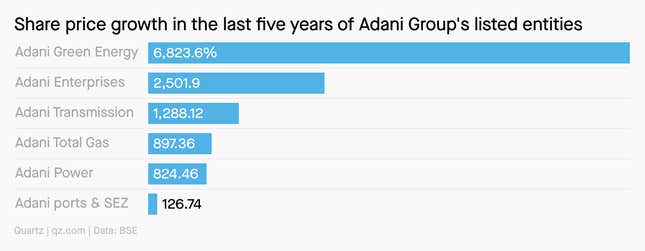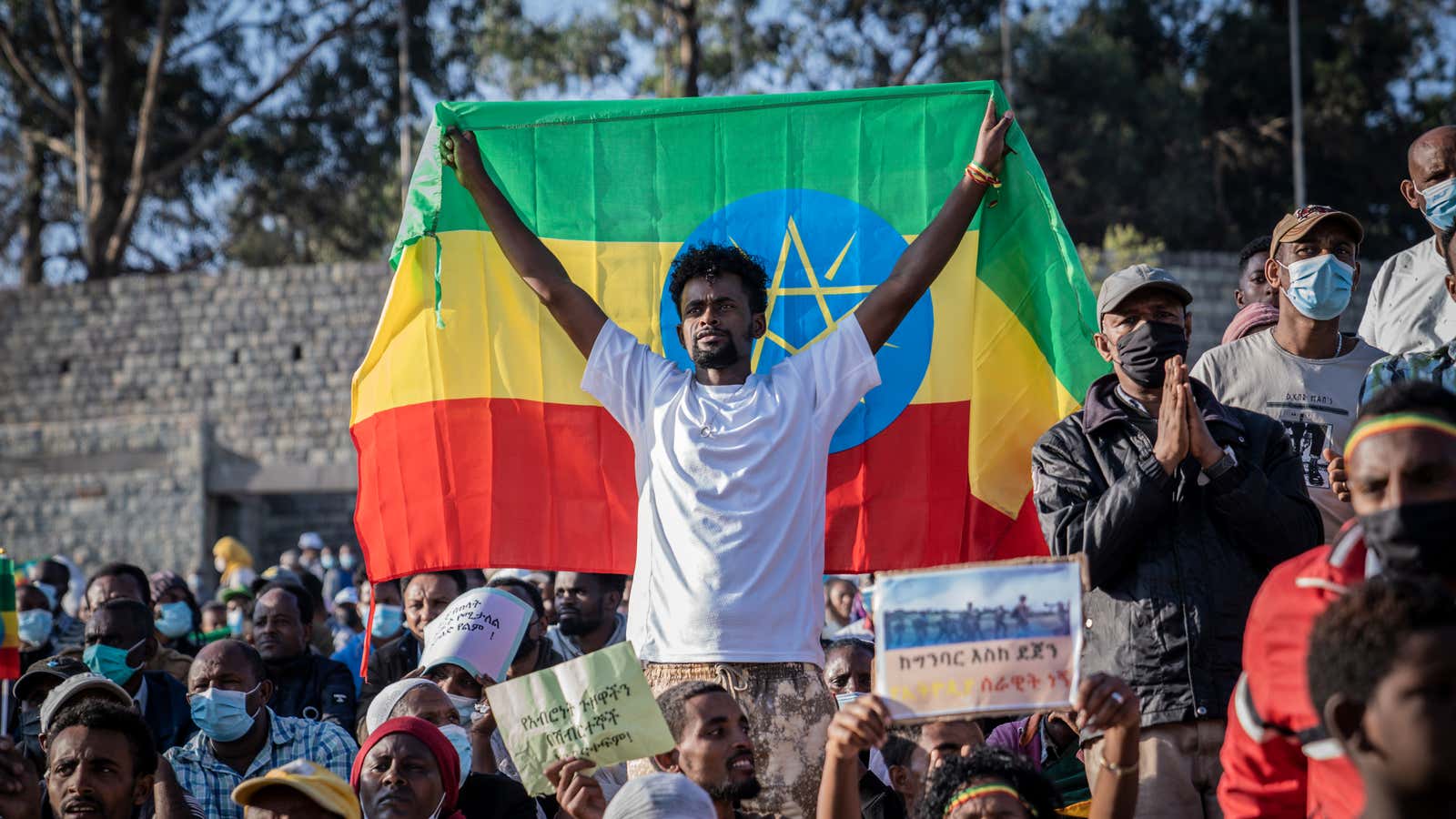Dear Quartz Africa readers,
For Lebogang Mashile, a South African poet, actress, and writer, the injustice of colonial rule is tied to her family tree. “The white soldiers who fought in WWI came back and were given homes, land, and jobs. My great grandfather fought in that war too. He came back with a coat, a bicycle, and PTSD,” she told me during a session at the recent Ake literature festival in Lagos focused on intergenerational trauma tied to colonial history.
As Lebo spoke to me, I thought of my own maternal great grandfather who was shot in the thigh in what was then known as Burma fighting Britain’s wars, in WWII. He was not given treatment, but was discharged from the army to come back home to die a few years later from the effects of that bullet that wasn’t taken out.
Conversations such as these ones are the ones that African literature festivals create the space for artists to have and bring to a larger public. In the decade since it was founded, Ake Festival has made its mark as one of the best and biggest literature festivals on the continent.
It traditionally takes place in Abeokuta, Nigeria—the hometown of African Nobel Laureate Wole Soyinka—and it brings together not only globally recognized writers (including two African Nobel Literature prize winners Wole Soyinka and Abdulrazak Gurnah this year) but also new and upcoming writers such as Francesca Ekwuyasi, Khadija Abdalla Bajaber, and Miracle Emeka-Nkwor. Under the charismatic leadership of Lola Shoneyin, author of The Secret Lives of Baba Segi’s Wives, Ake has grown to be a formidable part of the continent’s literary journey and evolution.
The story of Africans who fought Europe’s wars is best immortalized by Ousmane Sembene’s Camp de Thiaroye, which tells the real story of hundreds of west African soldiers who fought for France (referred to as the Senegalese Tirailleurs who on coming back to Senegal requested equal pay as that given to French soldiers. They were murdered for this. France had over 200,000 African troops fighting for them in WWI alone, 30,000 of whom were killed in the war.
African novelists have also explored more recent events in the continent’s history: Zukiswa Wanner’s hilarious novel on home politics, The Madams, cannot escape South Africa’s apartheid legacy; Wanjiru Koinange’s family drama, Havoc of choice, is set around Kenya’s 2007/2008 post-election violence; and in Nnamdi Ehirim’s family and political drama Prince of Monkeys, the Biafran war and Nigeria’s military regime takes center stage.
To be an African writer, is to sometimes be a reluctant navel gazer. History refuses to stay in the past, but telling stories is what allows us to put it to use for a better future.
—Ciku Kimeria, Africa editor
The Quartz Africa Weekly will be taking a two week break for the holiday season. We will be back in your inboxes on Jan.8, 2023. Wishing you all a lovely holiday break and a wonderful start to the new year.
What to watch for in the Quartz Africa Member Brief

By The Digits
75%: How much transport costs add to the price of goods in Africa
$100 billion: Annual infrastructure funding gap in Africa
35%: The share of exports value in Central Africa that is represented by transport costs
45%: How much transport costs weigh on the overall value of imports in Central Africa
Learn more about Lori Systems, an African logistics startup with operations in Kenya, Uganda, and Nigeria in this past week’s edition of the Quartz Africa Member Brief.
Stories this week
Meta believes the metaverse will be mobile in Africa…Unable to cut the cost of virtual reality headsets for its targeted African users, a senior Meta official told Faustine Ngila the company will spread its metaverse obsession through mobile phones.
…but first, the company needs to get a handle on content moderation. Two Ethiopian researchers and a Kenyan rights group filed a case against Meta in Nairobi alleging Facebook’s algorithm fanned the flames of violence during the Tigray war. Ananya Bhattacharya explains why the plaintiffs want $2 billion in compensation.
The US wants to trade more with Africa…Faustine Ngila lists the various plans announced at the US-Africa Business Summit to unlock opportunities in what the Africa Continental Free Trade Area (AfCFTA) estimates will become a $3.4 trillion economy.
…as Kenya looks upon the US to save the country’s airline. Kenya Airways has been on a loss-making streak for the past decade. Faustine Ngila describes president William Ruto’s efforts to find new investors to save the airline.
Nigerians artists are charting their own NFT path

Most Nigerians know about NFTs because of the fame of Prince Jacon Osinachi Igwei, who is regarded as the first artist who popularized crypto art or art on the blockchain in Nigeria.
In 2018, Osinachi joined Rare Art Lab, a platform that thaught him how to navigate art on the blockchain, and he then began to use Microsoft Word as his medium. He is the first African to be featured at a Christie’s NFT auction. In March 2021, he sold art worth $75,000 in 10 days followed by selling his piece, Becoming Sochukwuma for $80,000 on SuperRare. His success has built visibility for the Nigerian NFT scene.
This is the success that most Nigerian NFT artists hope to replicate despite a crypto ban in Nigeria and a low collector base. Ugonna-Ora Owoh explores the successes of Africa’s biggest NFT community.
Dealmaker
Sun King (formerly Green Light Planet), a Chicago-based provider of off-grid solar energy products in Africa, has secured a $70 million equity investment led from LeapFrog Investments. It’s an extension of the $260 million Series D round the solar company announced in April, which was led by BeyondNetZero. That means it has closed its Series D round at $330 million and raised over $550 million in debt and equity since its inception.
MyHealth Africa, a Nairobi-based healthcare startup that connects patients with local and international health specialists and hospitals, has secured $1 million in seed funding in a round led by GIIG Africa Fund, with participation from Japanese-based Samurai VC. The total amount raised by the startup now stands at $1.3 million.
Quartz gems
Is India’s Adani Group too big to fail?
The value of shares in the Indian companies belonging to Gautam Adani, one of the world’s richest men, has soared more than 1,000% in the past five years.

In a relatively short amount of time, Adani has embedded his energy firms deep within India’s infrastructure, partly due to a close relationship with prime minister Narendra Modi and coveted government contracts. Adani’s rise has also been fueled by vast volumes of taxpayer money, both as debt and investment—so much so that people are starting to question if Adani Group has become too big to fail.
A collapse of the conglomerate would send shock waves into the economy at large. Rating agencies and financial experts have already flagged risk factors including how the group could spiral into a debt trap. A massive default by one or several of Adani’s companies would rock not just the equities markets, but India’s economy overall.
Other things we liked
Kenyans are beefing with the president’s daughter. Nation’s Winnie Mabel details Kenya’s disbelief and outrage after Charlene Ruto introduced members of her team as holders of an unconstitutional “office of the first daughter.”
Sudan jailed a woman for kissing a man…The BBC’s Zeinab Mohammed Salih notes that prison came as a relief to the 20-year-old woman, as she was initially meant to be stoned to death.
…while Nigeria sentenced a Sheikh to death over blasphemy. The Vanguard’s Bashir Bello reports that a Shariah court sentenced Sheikh Abduljabbar Nasiru Kabara to death by hanging for his revisionist preaching and blasphemy against the Prophet Muhammad.
International court upheld a Ugandan rebel’s sentence. For the AP, Mike Corder writes that lawyers of former commander of the Lord’s Resistance Army Dominic Ongwen were unsuccessful in reducing his 25-year jail term.
The bodies of 27 Ethiopians were discovered in Zambia. Ethiopia is investigating the circumstances of the deaths which, according to AlJazeera, have “alarmed” the United Nations’ migration agency.
ICYMI
Apply for the Japan-Africa Investment Drive. The initiative seeks to match African startups to Japanese venture capitalists who are looking for 20 high potential African startups, with plans to invest at least $500,000 in each. (Dec. 19)
The Nieman-Berkman Fellowship in Journalism is open for applications. Applicants are eligible to receive stipends of $75,000 annually and an additional stipend of $10,000 that can be used for living, travel, and research expenses.
🎵 This brief was produced while listening to “Katapilla” by Bruce Melodie (Rwanda).
This week’s brief took you to 🇳🇬, 🇰🇪, 🇺🇬, 🇪🇹, 🇸🇩, 🇿🇲 and 🇷🇼
Our best wishes for a productive and ideas-filled week ahead. Please send any news, comments, suggestions, ideas, book recommendations, and artistic NFTs to africa@qz.com. You can follow us on Twitter at @qzafrica for updates throughout the day.
If you received this email from a friend or colleague, you can sign up here to receive the Quartz Africa Weekly Brief in your inbox every week. You can also follow Quartz Africa on Facebook.
